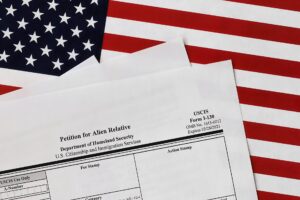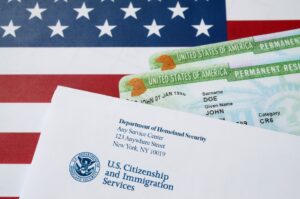If you are a foreign professional who wants to work in the United States, you may want to apply for an H-1B visa. However, before taking this step, you need to understand the most common H-1B visa mistakes and how these issues can lead to an H-1B visa denial. Having a thorough understanding of how these visa applications work will help improve your chances of being approved. Here is everything you need to know about avoiding common H-1B visa mistakes when submitting your application.
Incomplete or Incorrect Forms
One of the most common H-1B application errors people make is submitting incomplete or incorrect forms. Like any other aspect of the immigration process, the application documents need to be filled out thoroughly and in the correct way.
Each required field needs to be filled out and double-checked to ensure accuracy. Never fill out a field simply because it is required, as you need to provide correct answers; otherwise, you will run into serious issues later on.
You need to ensure you are using the most up-to-date forms since the USCIS regularly supplies new forms for applicants. If your forms are in another language, you also need to have them translated into English before submitting them.
Insufficient Supporting Documents
A crucial part of applying for an H-1B visa correctly is supplying sufficient supporting documents. These documents are usually required to back up the information you have provided by providing proof that you meet the qualifications for this type of visa.
You need to research the supporting documents you must include, such as proof of qualifications or proof of work experience. If you don’t have certain supporting documents, you can usually find information that gives you alternative documents you can provide instead.
Failing to provide enough supporting documentation could result in your application receiving a request for additional evidence or even a denial.
Incorrect Visa Classification
Work-based visas can be quite confusing since there are many different types of classifications. However, it is essential to do your research and apply for the right visa classification that you qualify for. Failing to do this will usually result in an outright rejection, which could reflect poorly on you if you apply for a different type of visa later on.
To ensure you apply for the right visa and submit a thorough application, you should take the additional step of hiring an H-1B lawyer. An immigration lawyer will have experience with H-1B visa applications and the common errors and can help you avoid these issues. An attorney can also help you if issues do arise, such as needing to provide additional evidence.
Specialty Occupation Issues
H-1B visas are only approved when the position requires a minimum of a bachelor’s degree or its equivalent. Because of this, you need to provide proof that the job qualifies as a specialty occupation by requiring this specific experience or level of education. If you fail to prove this, the USCIS may decide that the job doesn’t meet the specialty occupation requirement, leading to your application being denied.
To avoid running into this issue, you need to clearly define why the job requires specialized knowledge. You can also provide documentation regarding similar roles that also require specialized knowledge or expert opinion letters from industry professionals.
Prior Visa Violations
Immigrants who have prior visa violations may find that this negatively impacts their H-1B visa application. This can happen if they have overstayed on their visa, been denied other visa applications, or haven’t followed immigration laws.
These issues can also lead to problems for workers who already have an H-1B visa if they have failed to maintain their status.
You may also be found to be ineligible for immigrating to the U.S. due to your background. For instance, you may be found to be inadmissible to the USA if you have a serious criminal history, a connection with terrorist activities, or a connection with illegal drugs.
Employer Ineligibility
Because H-1B visas are work-based, your employer is going to be acting as your sponsor, working closely with you during the immigration process. This can come with a variety of H-1B visa mistakes, such as employer-employee relationship issues or employer ineligibility issues. To prove that the relationship is valid, you need to provide things like an employment contract, an itinerary of work assignments, or proof of work supervision.
Your employer will also need to be able to prove that they are eligible to support an H-1B worker. Oftentimes, employers may run into issues when it comes to proving that they can afford the foreign employee’s salary or prove that they actually need a highly skilled foreign worker.
To avoid running into these issues, your employer should provide substantial financial documents, contracts, and business plans. They should also go a step further to ensure their employer identification number and business license are up-to-date.
When applying for an H-1B visa, employers will also need to submit a labor condition application showing that they meet the LCA requirements.
Hire an Immigration Attorney Today
Do you want to immigrate to the U.S. with a work-based visa? Contact us today at U.S. Immigration Law Counsel at 800-666-4996 to speak with an immigration attorney about your situation. We will deal with the government, so you don’t have to!
FAQ:
Can a simple paperwork error lead to an H-1B denial?
The harsh reality is that even the most simple paperwork error can lead to your H-1B visa application being denied. That is why it is essential to double-check all of your answers before submitting your forms to ensure they do not have any mistakes or incorrect answers.
What happens if my employer doesn’t comply with LCA rules?
If the employer who is sponsoring you for an H-1B visa doesn’t comply with LCA rules, this can come with serious repercussions for both of you. You may lose your H-1B status, and your employer may face significant legal ramifications.
Is there a grace period after a H-1B denial?
Immigration law gives immigrants a 60-day grace period to remain in the United States after an H-1B denial.




